4 Ways to Beat Writer's Block (For Poets)
When writer's block comes knocking, it's important to have a bank of ways to beat it so you can keep working on your poetry and generating fresh poem ideas. Writer's block is something that happens to all of us in different ways, to varying degrees. It might feel like boredom, fatigue, a lack of ideas, a lack of motivation, or might even be your inner critic telling you that you're not good enough.
Whatever causes your writer's block, these activities can help!
1. Free Writing
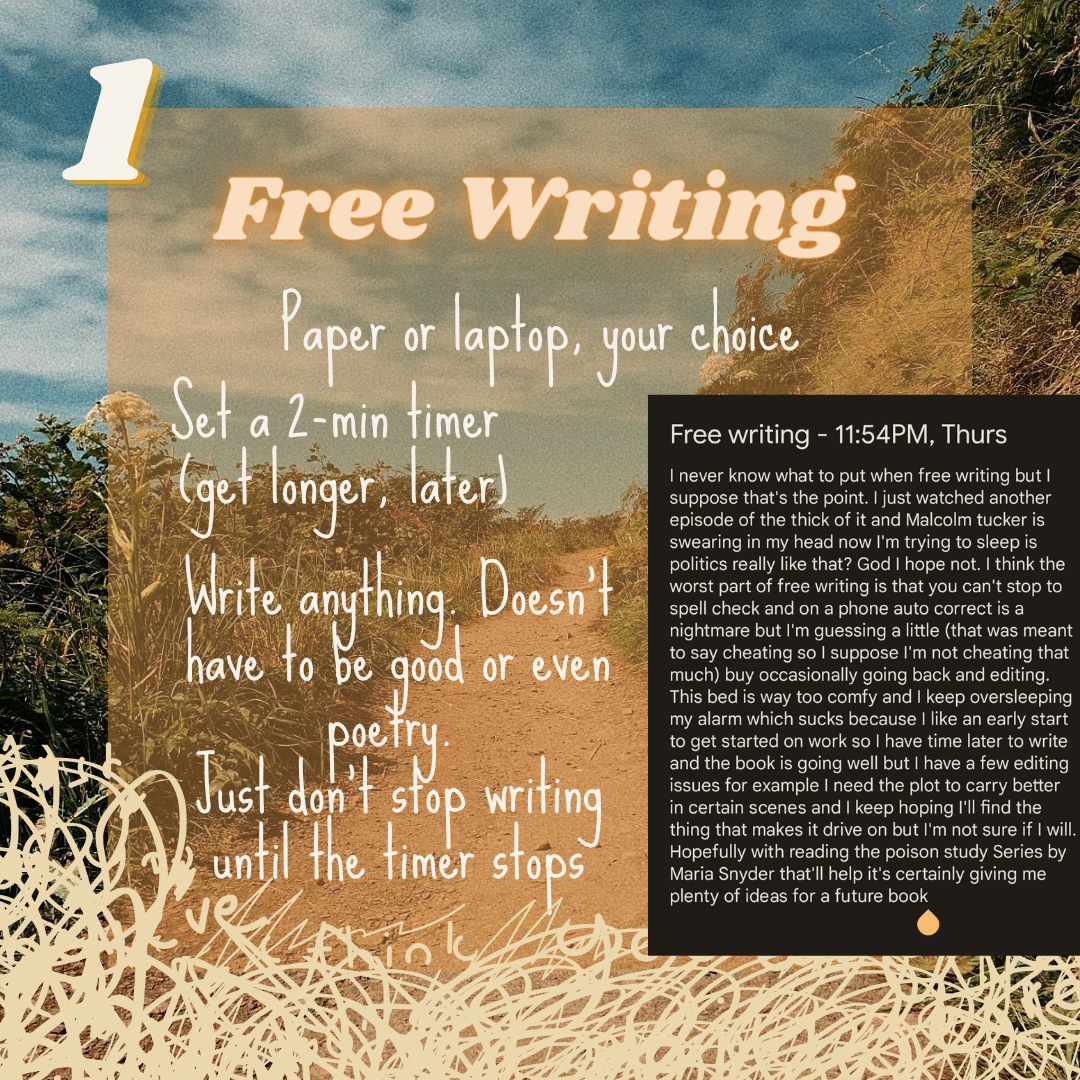
Grab some paper or your laptop, whatever your writing tool of choice is, and set yourself a five-minute timer. (As you practice this more, you can set it slightly longer each time.)
Now, write anything! It doesn't have to be good -- it doesn't even have to be poetry. Just don't stop writing until the timer runs out.
If you don't know what to write, write "I don't know what to write" over and over until your brain says something else. It can be about your day, your thoughts, if you're hungry, what you think about the task, wondering about your loved ones, noticing the weather outside, noticing the way your body feels while you write.
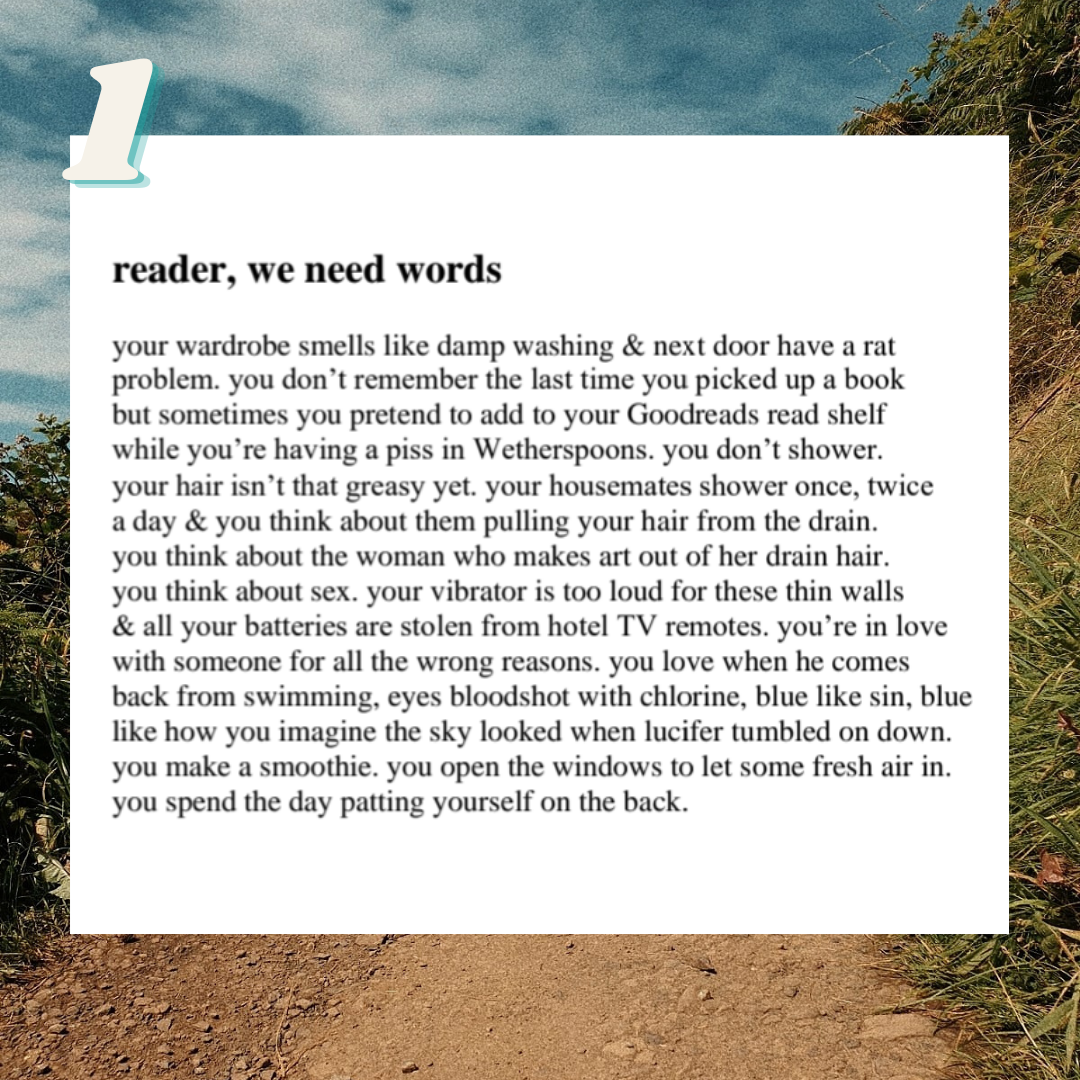
Use this as a warm-up or use it to generate some ideas. The longer you do it, the more dreamscape-y it might become which is a great way to come up with new thoughts!
2. Etymology
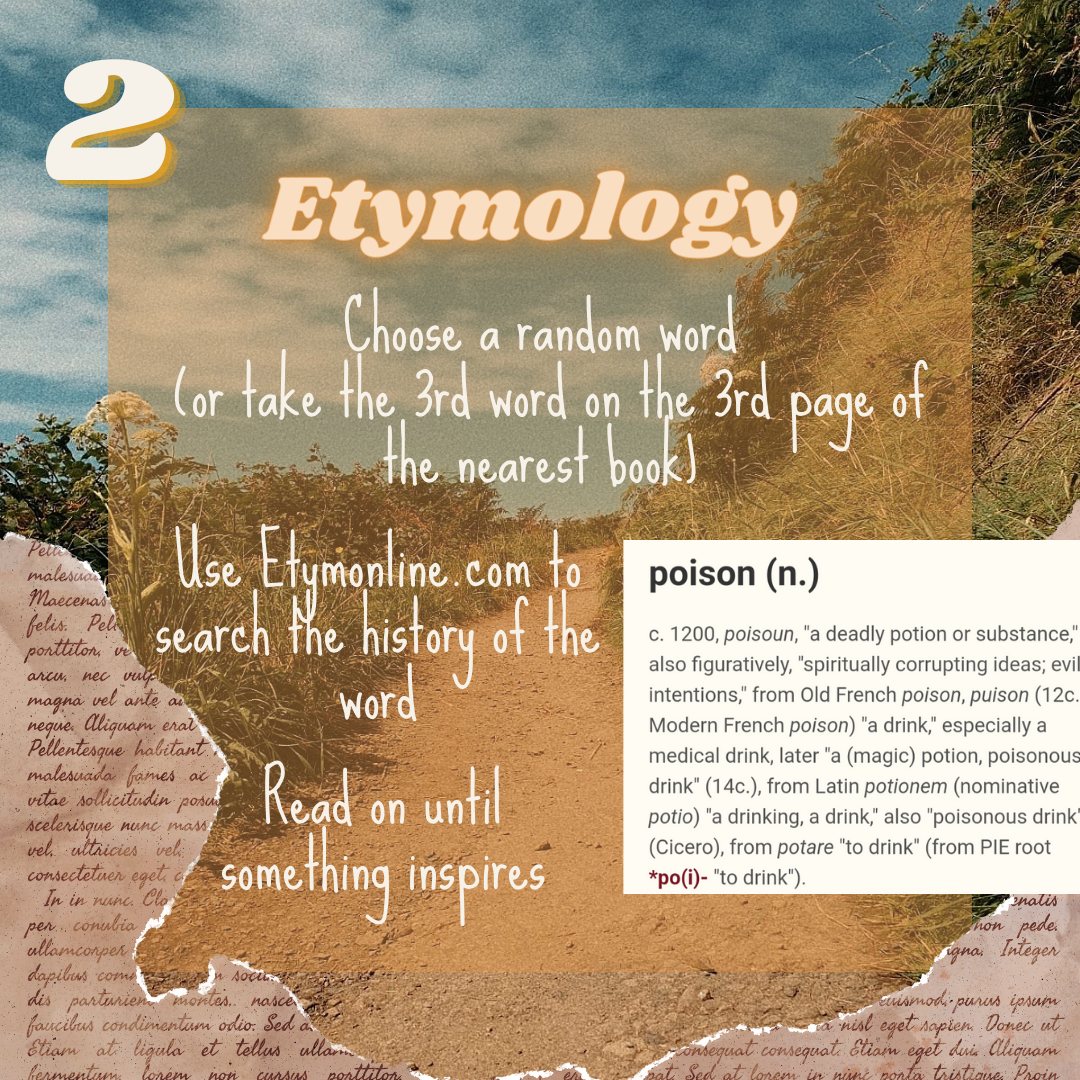
For this one, choose a random word. You might already have one in mind or you might use an online word generator or you might pick up the nearest book, flick through and point blindly at a page.
Now, visit etymonline.com and search up the history of your chosen word. Read on, taking notes of the bits that excite you or interest you the most.
This one was inspired by Matthew Sowerby, organiser of Kirkby Lonsdale Poetry Festival, who delivered a workshop on this technique.
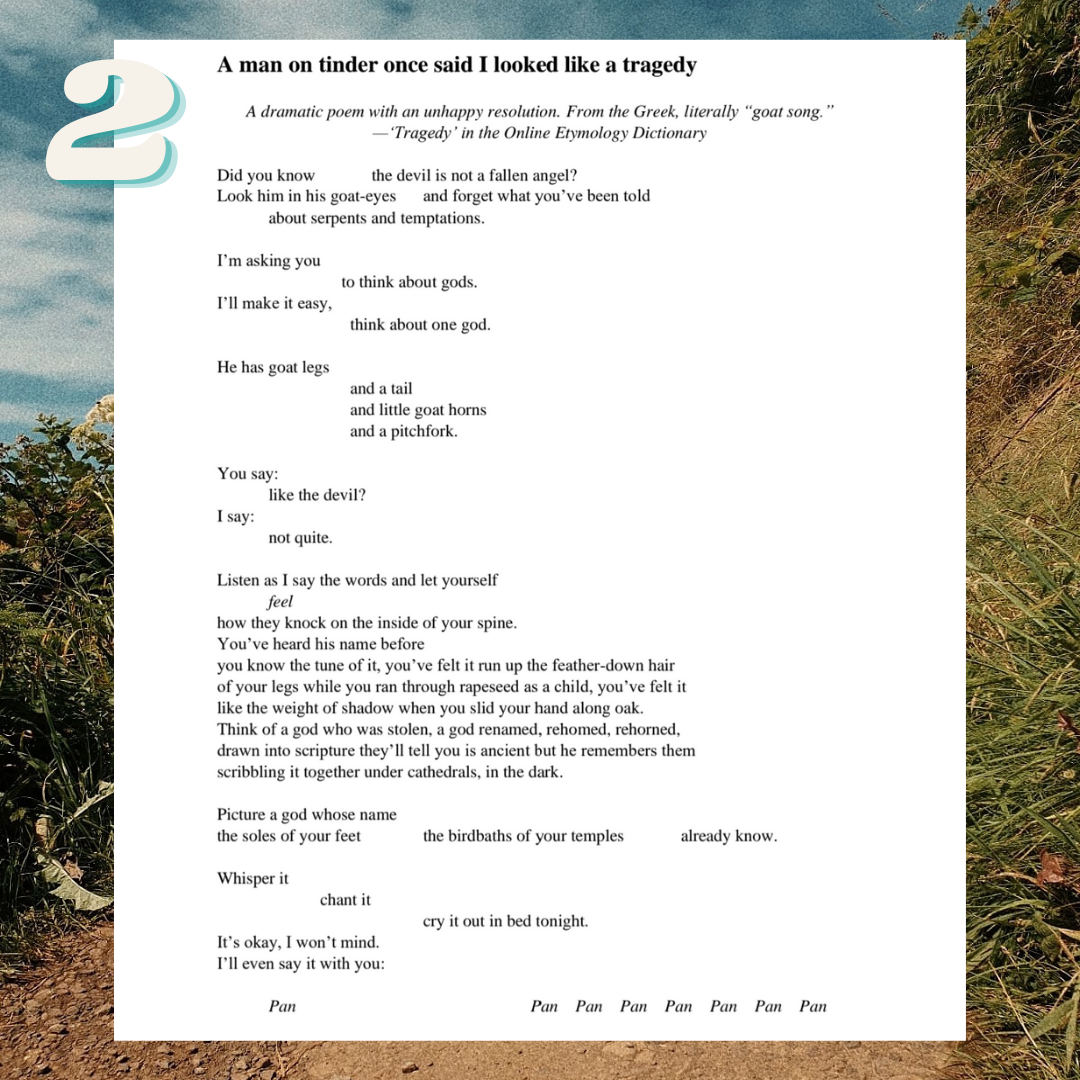
Write a poem with what you've got!
3. "I remember..."
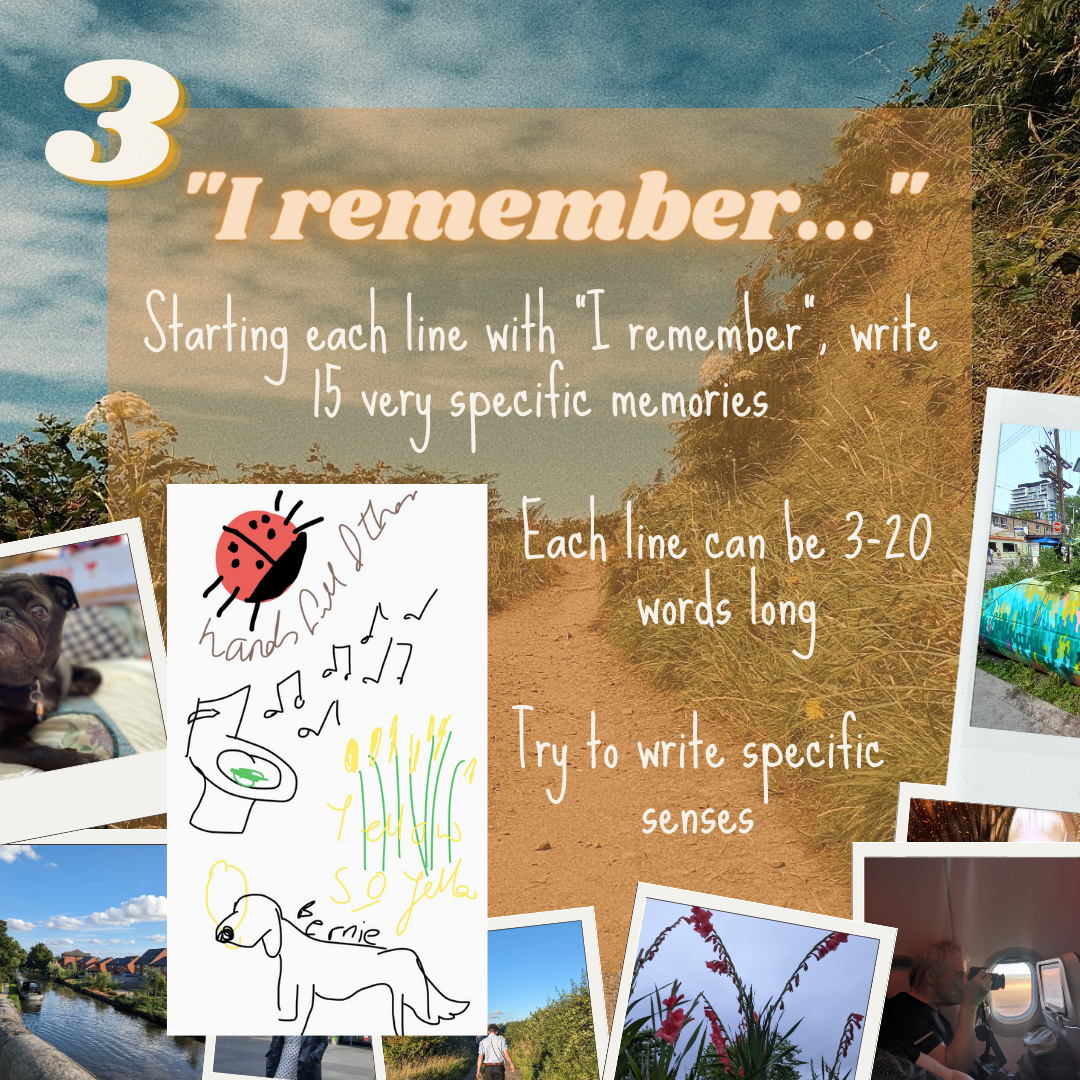
Inspired by the poet Joe Brainard who wrote the iconic 'I Remember' poem, this activity is all about you and your very specific human experiences.
Starting each line with "I remember", write fifteen very specific memories. Draw on senses, names, feelings, places.The more specific the better.
Each line can be 3-20 words long. If you find yourself getting longer, that's okay too. There doesn't need to be a flow or an arc or any logical sense behind the order of them, just what comes to your mind.
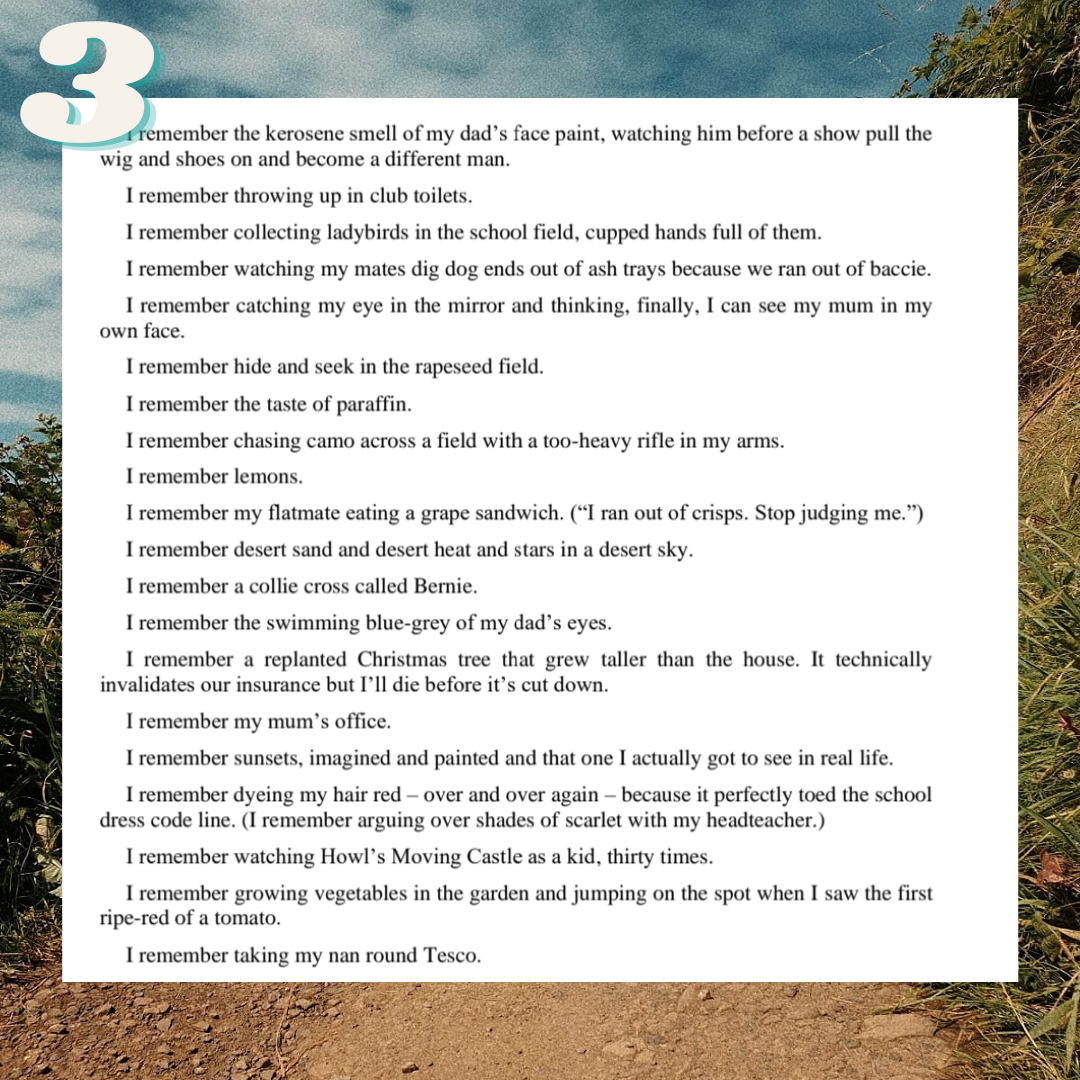
When you're done, choose three of those lines that stood out to you the most and work all three of them into their own, new poem.
4. Frankenstein
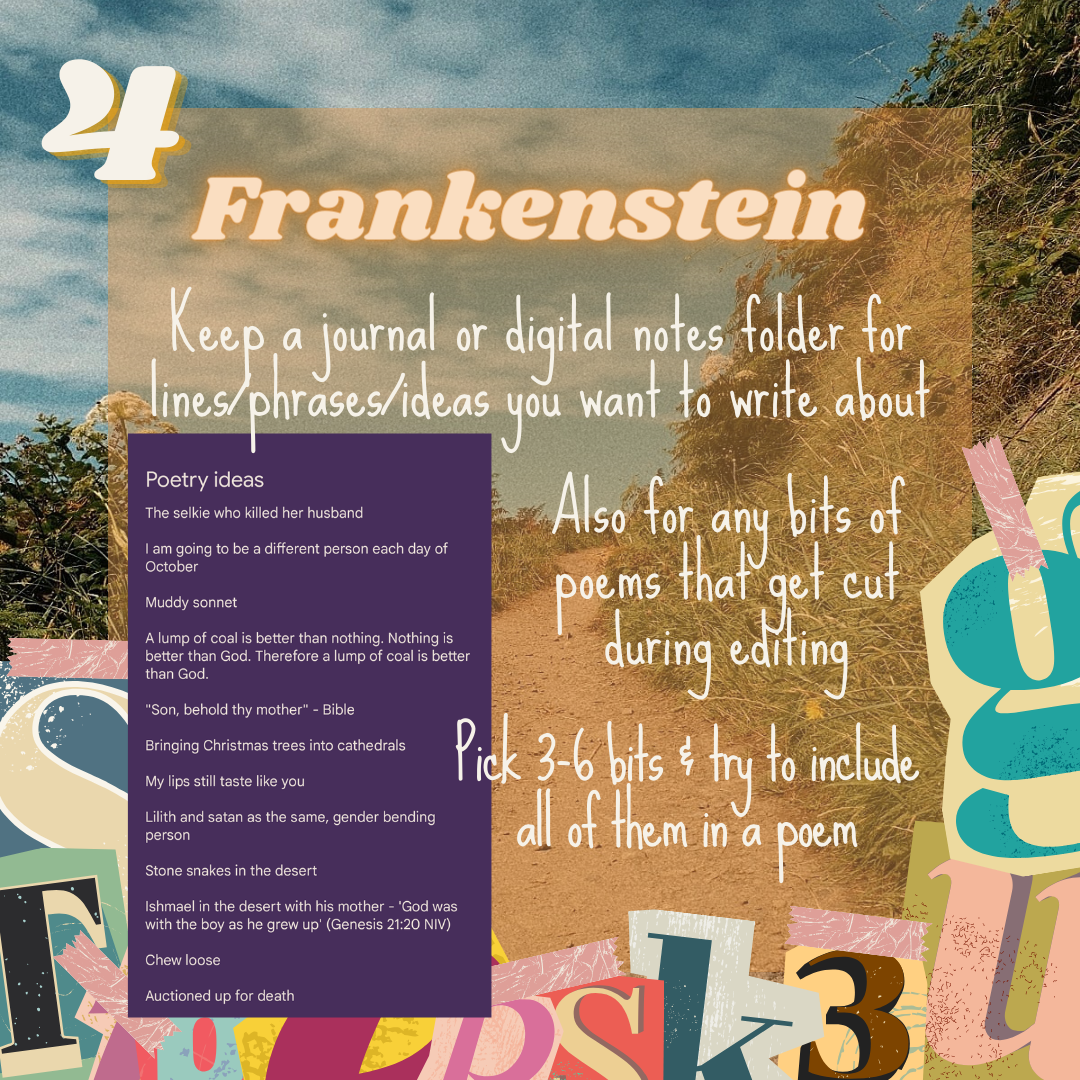
A great practice for any writer is to keep a journal or a digital notes folder on you at all times. Fill it with all those lines/phrases/ideas you hear or see through the day until you've got a bank full of things you want to write about.
You can also keep bits of poems that get cut in the editing process here - so you can reuse them later!
Then, when you're struggling with writer's block, pick 3-6 bits from your bank and try to include all of them in a poem. You don't necessarily need to force it one way or the other but perhaps start with one idea and think about how that might interact with a second idea. As you start writing, maybe slip in that line that you've been excited to use in a poem and see how it fits...
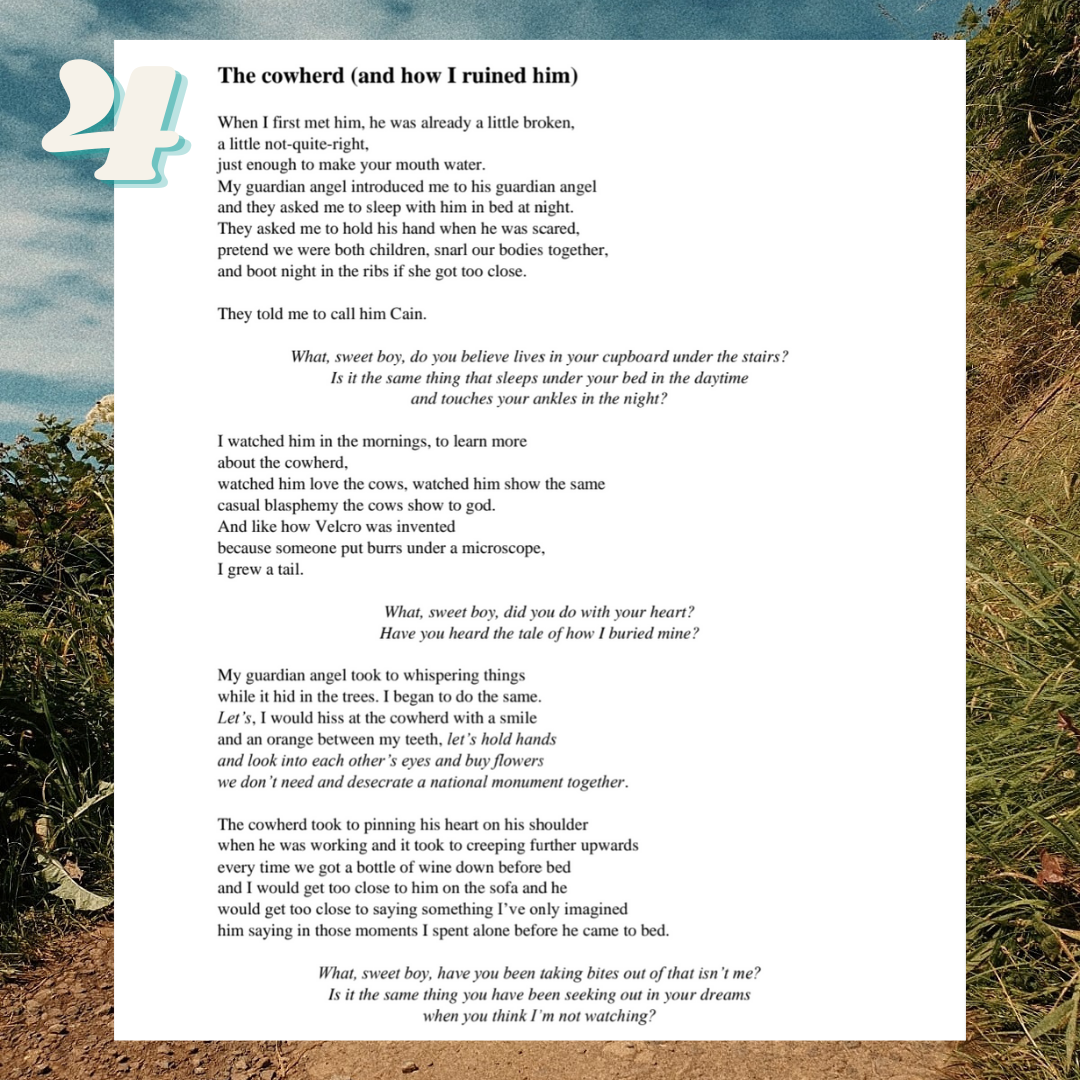
There's four easy and creative ways to beat writer's block! Keep them in your arsenal for those days when you can't muster up any new poetry ideas or the will to write your poems and you'll never have to worry about writer's block again.
